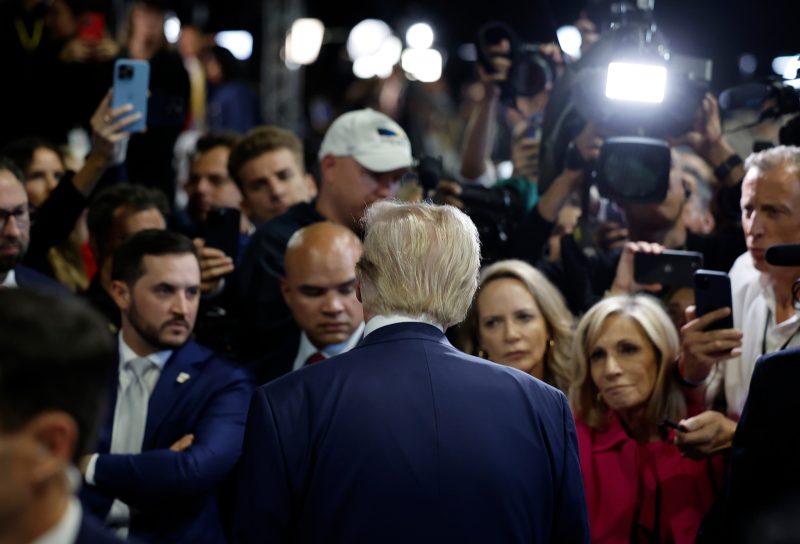In a recent turn of events, the political landscape in the United States has witnessed a heated exchange over rhetoric and its implications. President Donald Trump has pointed fingers at Democrats, accusing them of dangerous rhetoric, while simultaneously engaging in similar practices himself. This double standard has brought to light the complexities and contradictions within political discourse, raising questions about accountability and responsibility in a polarized society.
The issue of dangerous rhetoric is not a new one in American politics. Both Democrats and Republicans have been guilty of using strong and divisive language to rally support and attack opponents. However, what sets this latest debate apart is the blatant hypocrisy displayed by President Trump in his criticism of Democrats’ rhetoric while actively employing similar tactics.
Trump’s pattern of using inflammatory language, personal attacks, and derogatory terms has been well-documented throughout his political career. From labeling opponents with demeaning nicknames to promoting conspiracy theories and endorsing violence at his rallies, the President has continuously blurred the lines between political discourse and outright aggression.
What makes Trump’s criticism of Democrats’ rhetoric particularly noteworthy is the fact that he has often used the same tactics he condemns. By claiming that Democrats’ rhetoric is dangerous and divisive, Trump attempts to portray himself as a voice of reason and moderation. However, his own track record reveals a stark contradiction that undermines his credibility on this issue.
Furthermore, the selective nature of Trump’s criticism raises questions about his motives and intentions. By attacking Democrats for their rhetoric while downplaying or excusing his own, Trump seeks to shift the focus away from his own controversial statements and actions. This strategy of deflection and projection is a common tactic used by politicians to avoid accountability and scrutiny.
In a deeply polarized political environment, the impact of dangerous rhetoric cannot be underestimated. Words have power, and the language used by political leaders can shape public perception, fuel social divisions, and incite violence. When leaders engage in irresponsible rhetoric, they set a dangerous precedent that can have far-reaching consequences for society as a whole.
As the debate over rhetoric and its implications continues to unfold, it is essential for political leaders to hold themselves accountable and strive for more constructive and respectful discourse. By condemning inflammatory language on all sides and leading by example, leaders can help foster a more inclusive and civil public discourse that promotes unity and understanding.
In conclusion, the issue of dangerous rhetoric in politics is a complex and multifaceted one that requires careful consideration and introspection. President Trump’s criticism of Democrats’ rhetoric while using similar tactics himself highlights the need for greater accountability and responsibility in political discourse. Moving forward, it is crucial for leaders to acknowledge the impact of their words and strive to promote a more respectful and inclusive public dialogue for the betterment of society as a whole.
